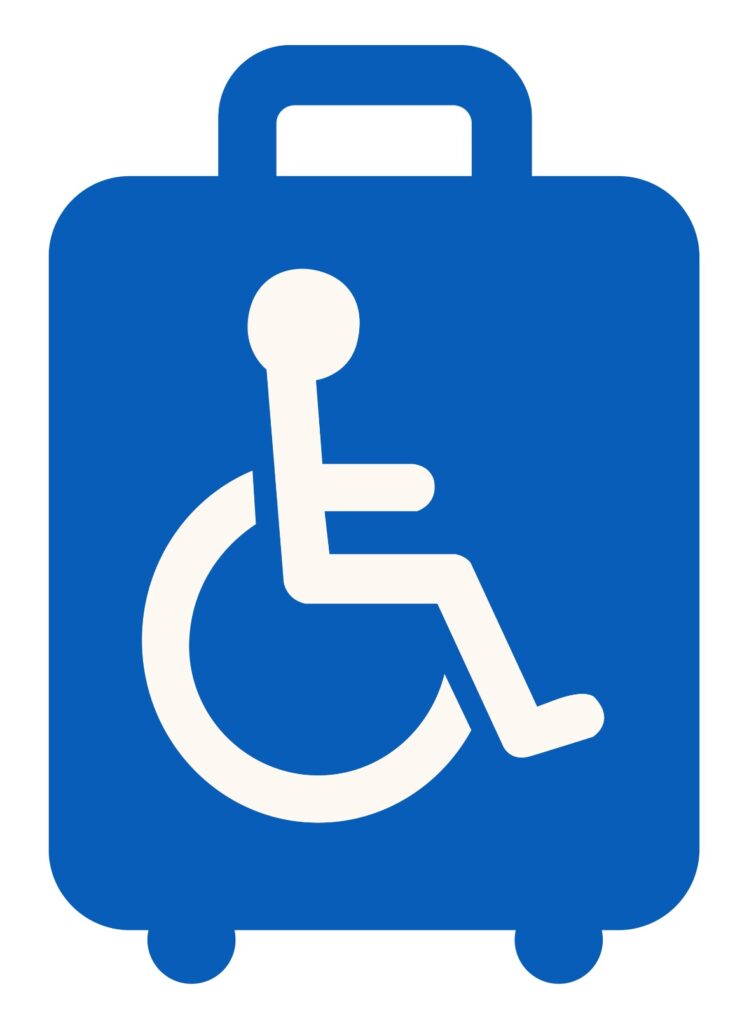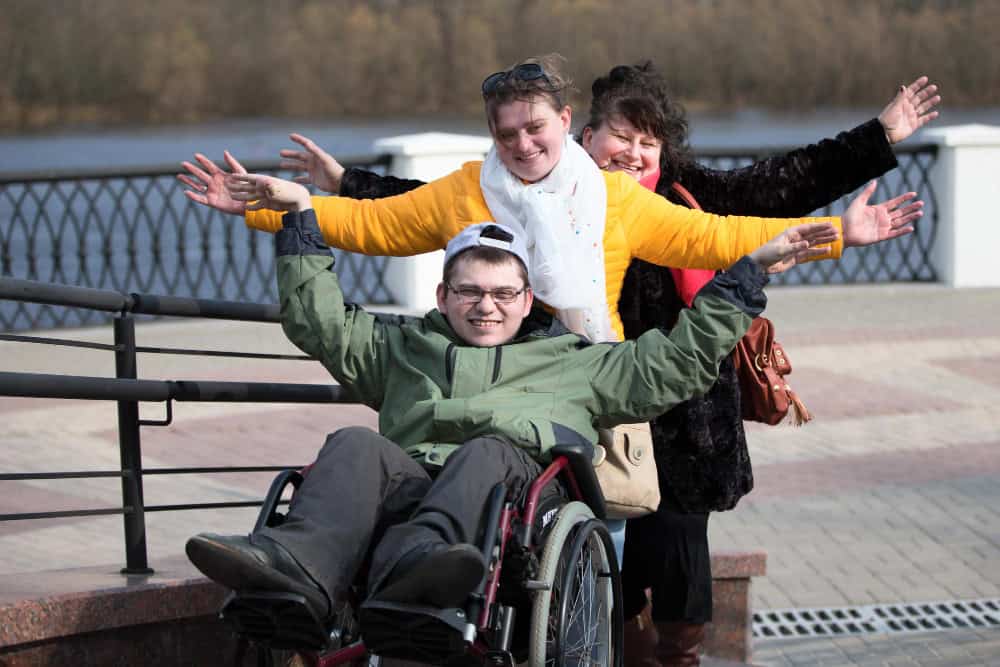Planning a break should be exciting, not confusing. If you or your family member use the NDIS (National Disability Insurance Scheme), you might be wondering how a holiday can work with your plan. Don’t worry, it’s absolutely possible! This guide will walk you through what to expect from NDIS holiday packages, how the funding works, and the steps to lock in a safe, enjoyable trip with the right support.
What Does the NDIS Fund on Holidays?
Think of it this way: the NDIS can fund the supports you need due to your disability, but not the generic “holiday” costs that anyone would pay. In practice, this means the NDIS generally won’t pay for flights, hotel rooms, meals, theme park tickets or other travel expenses. Those costs are considered personal and not disability-related. However, NDIS funding can cover the extra assistance you require on the trip that is reasonable and necessary for your needs. For example, if you need a support worker to come along or specialized equipment at your destination, those supports might be funded through your NDIS plan.
One important nuance: Short Term Accommodation (STA) funding (often used for respite) is not meant to just pay for a vacation. STA can fund a short stay away from home when it’s tied to your disability needs, for instance, giving your carers a break or building your independence, but you can’t use STA funding for a random holiday without a disability-related purpose. So, the NDIS might fund up to 28 days of STA per year, but only if the trip meets a goal like developing skills or providing respite, not simply tourism.
Common NDIS-Funded Supports During Travel
So, what kinds of things will the NDIS pay for on a holiday? Here are some examples of supports that could be funded as part of your trip (provided they are directly related to your disability and goals):
Support worker hours: If you need help with personal care, mobility, or accessing the community while traveling, you can use Core Supports funding to have a support worker assist you on the trip. The NDIS will generally cover their time working with you (though not their own flights or meals, which you’d have to cover separately).
Essential equipment hire: Traveling with bulky equipment can be tough, but you might arrange to hire items like a hoist, shower chair, or beach wheelchair at your destination. If this equipment is necessary for your daily needs, the cost could be claimed through your plan (often under Assistive Technology or Core Supports, depending on the item).
Disability-related transport: If your plan includes transport funding or if you’re using a provider’s transport as part of the support, this can cover things like wheelchair-accessible transfers or vehicles during the trip. Comfy Travel’s packages use wheelchair-friendly vans for local travel. (Keep in mind, the NDIS transport allowance won’t buy you plane tickets, it’s more for day-to-day transport needs.)
In summary, NDIS funding covers the support to help you travel, not the travel itself. You’ll use your own money for the standard holiday costs, while the NDIS can chip in for the extra help or gear that make the holiday possible and aligned with your support needs.
Types of NDIS Holiday Packages
NDIS holidays aren’t one-size-fits-all. The “best” package really depends on your goals, interests, and support needs. Here are a few types of NDIS holiday packages to consider, and who they’re best suited for:
NDIS Holiday Package for Adults: These trips focus on building independence, daily living skills, or social participation for adult participants. For example, an itinerary might include learning to navigate a new city (practicing using maps or public transport), budgeting for meals, or joining group activities with peers. It’s a holiday, but also a chance to work on life skills in a fun, real-world environment.
NDIS Family Holiday: This option allows a participant to travel with their family, with the necessary supports on hand. The NDIS can fund the participant’s disability supports during the family trip, while the family enjoys time together. It’s perfect if, say, parents or siblings want to share a holiday experience but also get a bit of respite because a professional support worker is there to assist the participant as needed. (Keep in mind, the NDIS won’t cover the family’s travel costs, just the supports for the person with a disability.)
Supported Group Holidays: Sometimes called supported holidays (NDIS), these can be group tours where several NDIS participants travel together with qualified support staff. It’s a great way to make new friends and share experiences with people who have similar interests. Group trips often have a set itinerary (e.g. a week at the Gold Coast visiting theme parks with support staff supervising and helping), and the support ratio might be something like 1 staff for every 2 or 3 travelers, depending on needs. There are also private supported holidays, where it’s just you (or you and a companion) traveling with a dedicated support worker as a “travel buddy.” That allows a fully tailored pace and schedule.
Respite Getaways (Short Term Accommodation): These are trips funded under STA for the purpose of respite or skill-building. They might look like a holiday – for example, a weekend at a cabin or a few nights in a city – but the key is they have a goal attached. Maybe it’s giving your full-time carer a break, or helping you try a new environment to build confidence. These stays usually include accommodations, meals, and activities as part of the STA support (since STA typically covers a bundle of care, food, and lodging for the participant). Just remember, as mentioned earlier, STA has to meet a disability-related need (respite, independence practice, etc.), not just be a vacation.
Special Interest Trips: Have a particular passion? There are supported holidays designed around special interests – for example, an accessible nature and wildlife tour, a trip to an inclusive sports event, or checking out an accessible arts festival. These trips can be fantastic for participants with goals around community participation or pursuing hobbies. Because they are interest-based, you’ll likely connect with other travelers who enjoy the same things, making it a rich social experience too.
How to Compare NDIS Holiday Providers
Not all travel providers are created equal, especially when it comes to disability support. It’s important to do a bit of homework and make sure the provider can meet your specific needs. Here’s a handy checklist to review when comparing NDIS holiday providers (or any travel agency for people with disabilities):
Goal Alignment: Does the trip align with your NDIS goals? For instance, if your goal is to improve social participation, does the itinerary include group activities or community events? A good provider will ask about your goals and suggest trips that genuinely support them.
Support Ratio & Qualifications: What is the staff-to-traveler ratio, and what are the staff qualifications? Depending on your needs, you might require a 1:1 support worker, or you might be fine in a small group with 1:2 or 1:3 support. Ensure the provider is clear about this. Also, check that their staff are properly trained, experienced, and have undergone NDIS worker screening (including police checks, Working With Children checks if relevant, etc.).
Accessibility Details: Don’t settle for vague assurances like “yeah, it should be accessible.” Ask for specifics in writing about the accommodations and activities. For example: Are all the paths and entrances step-free? What are the bathroom features (roll-in shower, grab rails, shower chair availability)? What’s the width of doorways? Is there an elevator if it’s a multi-story building? How high is the bed (will your hoist fit under it)? An honest provider will either have this info ready or will gladly obtain it for you.
Medication and Care Plans: If you have specific medical or behavioral support needs, make sure the provider can handle them. Do they have clear processes for things like medication administration, meal-time management (especially if you need modified food textures or feeding assistance), or protocols for any behaviors of concern? If you have an epilepsy management plan or similar, will the staff be trained on it? These details are critical for your safety.
Equipment Availability: Find out if the provider can help source or arrange any equipment you’ll need. Can they get a hoist or commode chair delivered to the hotel if you need it? What about a rental shower chair, or a beach wheelchair for a day at the shore? Good providers often have partnerships or know local equipment hire services.
Transport Arrangements: Ask about how you’ll get around during the trip. Will there be a wheelchair-accessible vehicle for all transfers and excursions? If you’re flying or taking a train, do they assist with accessible booking and boarding? Also, how do they handle any unforeseen transport issues (like a vehicle breakdown or a missed connection)? Providers experienced in accessible travel will have contingency plans.
Transparent Pricing: The provider should give you a detailed, itemized quote that clearly separates what can be claimed under NDIS funding and what you have to pay out-of-pocket. For example, support worker hours might be claimable, but your theme park ticket and lunch are on you. There should be no confusion about which costs are which. An honest operator will happily break this down – it helps you and them to stay within the rules.
Progress Reporting: Since one aim of these trips is often to achieve personal goals, check if the provider offers any documentation or reporting after the trip. For instance, will they write a short report on what goals were worked on or any outcomes achieved? This can be great evidence for your next plan review, showing how the holiday (as a support) benefited you.
24/7 Support & Emergency Plan: Finally, ask about support after hours. If something goes wrong at 10 pm, is there an on-call number you can ring? Understand their risk management too – for example, how do they handle illness or emergencies during the trip? Knowing that there’s a plan in place (and a person to contact anytime) will give you peace of mind.
At Comfy Travel, we tick all these boxes. We’re an NDIS-registered provider operating Australia-wide, with fully wheelchair-accessible transport, NDIS-screened support staff, and 24/7 on-call assistance throughout your trip. We also handle all the pesky paperwork and planning, so you can just focus on enjoying the experience!
Step-by-Step: How to Apply and Book an NDIS-Supported Holiday
Ready to turn your dream getaway into reality? Here’s how to go from idea to departure, step by step:
- Clarify your goal for the trip:What do you want to get out of this holiday? Is it purely for respite (a break for you and/or your caregivers), or do you want to work on skills and independence, or perhaps increase your social and community participation? Having a clear goal in mind not only guides the planning, it’s also important for justifying the use of your NDIS funds.
Talk to your Support Coordinator or Planner: It’s a good idea to loop in your support coordinator (or Local Area Coordinator / plan manager) early. Discuss the trip and make sure the kinds of supports you’ll need are indeed covered in your plan budget. For example, do you have enough Core Supports funding for the additional support worker hours? Also, consider using the NDIA’s “Can I buy it?” checklist – this is a handy guide the NDIA provides to help participants decide if something is reasonable to purchase with NDIS funds. Essentially, it boils down to: Is the expense directly related to your disability and your plan goals? If yes, it might be okay; if not, the NDIS probably won’t cover it. This step will give you confidence that you’re staying within the rules.
Get an itemized quote from the holiday provider: Once you’ve identified a travel provider or a specific package (for example, you contact Comfy Travel about a trip to Queensland in June), the provider should give you a detailed quote. Make sure it clearly separates NDIS-claimable costs from personal costs. For instance, it might show 30 hours of support worker assistance at $XX/hour (NDIS claimable under Core Supports) and separately list $YY for accommodation, $ZZ for activities (which you would pay). This quote is crucial for planning your budget. If something seems off or you’re not sure whether an item can be funded, don’t hesitate to ask for clarification.
Provide necessary documentation and approvals: Before finalizing the booking, you’ll likely need to complete some paperwork. This can include a service agreement with the provider, a proposed itinerary, risk assessment forms, and a support plan detailing how your needs will be met during the trip. Your provider will help prepare these. You might need to get your plan manager or support coordinator to sign off, especially if they will be the ones actually processing the payments. If the trip uses STA funding, ensure you have approval for that from the NDIA or it’s specified in your plan. Basically, this step is about dotting the i’s and crossing the t’s so everyone (you, the provider, and the NDIS) are on the same page.
Finalize funding and book your holiday!: Once the paperwork is in order and you have the green light (either through an approved service booking if you’re agency-managed, or a confirmation from your plan manager, etc.), you can lock in the reservations. The provider will usually take care of booking the accommodation, arranging support staff schedules, and any activities that were included. You’ll want to arrange any travel you’re handling (like flights) and make sure you have travel insurance if needed. Then, congratulations, it’s time to pack your bags and get ready for an adventure, knowing that the right supports will be in place.
With us, the process is simple and personalized. We start with a free consultation to understand what you want from your holiday and how your NDIS plan can support it. From there, we help you explore holiday options, zero in on the perfect destination, and then handle the rest; think of it as “consultation to vacation” service. We’ll help with the NDIS paperwork, coordinate with your support coordinator or plan manager, and once everything’s confirmed, finalize all your bookings. On travel day, you just enjoy the journey with confidence, knowing we’ve got your back 24/7 if any issue arises.
Ready to Go?
The world (or at least Australia for now!) is more accessible than you might think, especially with the right travel partner. At Comfy Travel, we believe everyone deserves a stress-free holiday. If you’re dreaming of a getaway, let’s chat about making it a reality. Start with a free consult and we’ll provide a clear, itemized quote with no obligations. You can also read more on how to book a trip with us, and check out what counts as Personal vs NDIS Costs so you know exactly where your funding goes. Need some inspiration? Browse our upcoming accessible holidays to see some exciting destinations we’ve got in the works. With the right planning and supports, your only job will be to relax and enjoy the journey!
FAQs
An NDIS holiday package is a trip designed to support participants with disabilities. It includes funded supports, such as a support worker or specialized equipment, while participants cover personal travel costs like flights and accommodation.
The NDIS generally covers disability-related supports, including support worker hours, essential equipment hire, and disability-related transport during the trip. Personal costs like flights, hotels, meals, and activities are usually not funded.
STA funding can support short stays away from home, but only if the trip is linked to your disability goals, such as respite or skill-building. It cannot be used for a regular vacation without a disability-related purpose.
Consider your goals, interests, and support needs. Options include adult skill-building trips, family holidays, group or private supported holidays, respite getaways under STA, and special interest trips tailored to hobbies or social participation.
Key factors include alignment with your NDIS goals, staff-to-participant ratio, staff qualifications, accessibility of accommodations and activities, equipment availability, transport arrangements, transparent pricing, progress reporting, and 24/7 support.
Start by clarifying your trip goals, consult your support coordinator or plan manager, get an itemized quote from a provider, submit required documentation for approvals, finalize funding, and confirm your bookings.
Yes, you can take a family holiday, but NDIS funding only covers disability supports for the participant. Family travel costs, meals, and activities are generally out-of-pocket.
Comfy Travel handles all planning, paperwork, and coordination with support coordinators. They provide wheelchair-accessible transport, NDIS-screened staff, and 24/7 support, ensuring participants enjoy a safe, stress-free, and goal-focused holiday.


